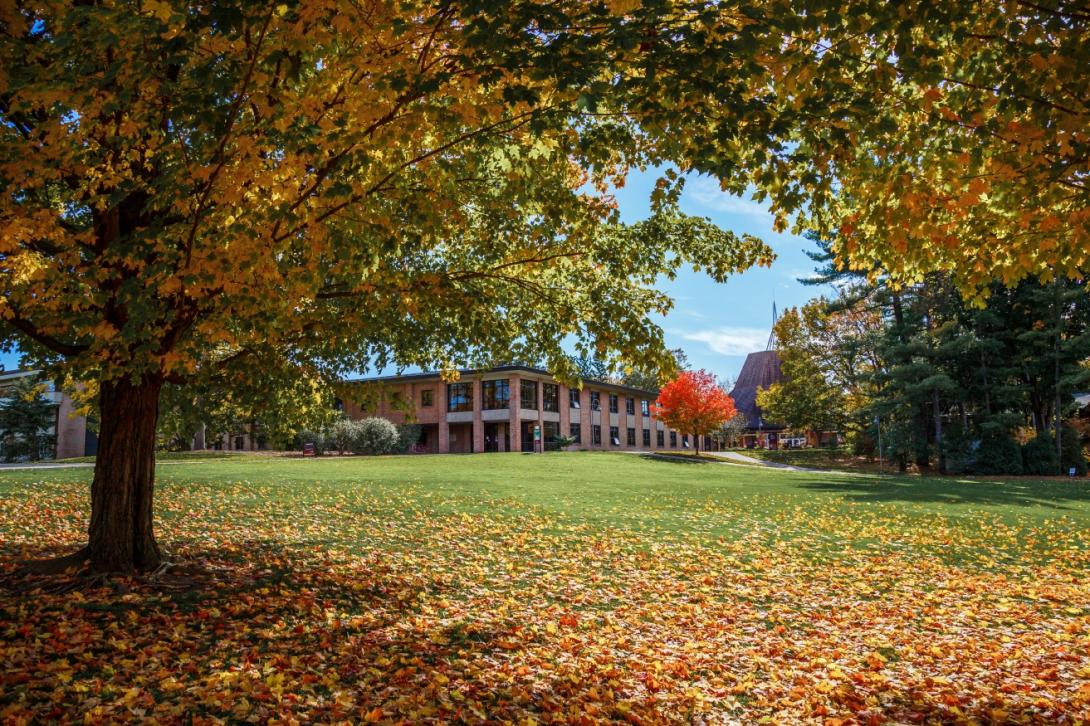Calvin University receives $500K grant to strengthen the humanities

The National Endowment for the Humanities (NEH) has awarded Calvin University $500,000 in relief funding as part of the American Rescue Plan that was passed by Congress earlier this year.
The NEH awarded 292 (of 937 applicants) cultural organizations and educational institutions grants totaling $135 million. These relief grants are intended to help humanities recover from the economic burdens of the pandemic, enable the reopening of humanities institutions and programs, and to support the retention of the humanities workforce.
“While the humanities at Calvin, as in other places, have experienced a season of student enrollment decline, the departments, faculty, and students within the humanities at Calvin have remained vibrant and productive,” said Benita Wolters-Fredlund, dean for the school of humanities, arts, and social sciences at Calvin University. “This relief funding provides opportunity for us to continue to bolster the humanities, addressing the current challenges while identifying and creating pathways toward a brighter future.”
The funding is being used to retain tenure-track faculty in the humanities, freeing up some of their time so they can envision and implement strategic initiatives to re-energize the humanities across campus. Their focus is on three key areas:
- creating communities of practice that will develop scholarship frameworks, scholarly products, and connect learning to areas of strategic and long-term significance;
- creating engagement with new learning communities by creating programming for new learners and pathways to Calvin; and
- investing in Community and Commitments, a foundational humanities course in Calvin’s new core curriculum that introduces students to a liberal arts education and to three areas Calvin considers essential to foster engaged citizenship: diversity and difference, environmental sustainability, and global regions and cultures.
“The idea is we buy out a percentage of multiple faculty members’ time from a number of different disciplines so that they have space to think creatively and strategically together on ways to help the humanities flourish in the future,” said Wolters-Fredlund.
Wolters-Fredlund and her colleagues across disciplines realize the significance of this work as the humanities are central to a Calvin education. Besides almost 30-percent of Calvin students having a declared major in one of 57 different humanities programs, more than half of the newly revised core curriculum is in the humanities, and for some students that percentage is much higher.
“The humanities point us to the human experience. Who we are as humans and how we relate to each other in community, those are at the core of what the humanities does,” said Wolters-Fredlund, “and understanding how we achieve human flourishing is woven into the central themes of our refreshed core.”
“When students take courses in different disciplines, they begin to draw connections that change how they see the world,” said Carolyn Anderson, professor of chemistry and biochemistry and the newly appointed director of core. “Complexities are revealed that we might have otherwise missed because our disciplinary perspective was too narrow.
“At Calvin, the liberal arts, anchored by the humanities, inform everything that we do. Through the humanities in particular, our students are challenged to ask better questions—a skill that sets them apart from their peers after graduation.”
The NEH grant is being used during the 2021-2022 academic year and will involve more than a dozen faculty members at Calvin.






